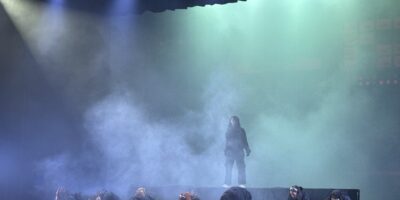France and Switzerland boast some of the best things to enjoy in life, such as their fine wines and gourmet cheeses, their cuisine in general, their mountains, scenery, people, bistros, beaches, history, literature and culture, to name but a few. Also, the French and Swiss are justifiably proud of very advanced and exceptionally high-quality universities and institutes of Engineering education. In addition, these nations have been in the forefront of engineering innovation. So, why not consider going to France or Switzerland for a term or two of study on exchange?
Consider this: French is the first language of about half a million Ontarians. New Brunswick is officially bilingual, and about a third of its people primarily speak French. In Quebec, over 80% of the people claim French as their mother tongue. Altogether this makes about seven million Canadians whose first language is French. Just remember, French is not a foreign language in Canada. But only about 5.5 million Canadians can communicate verbally in both languages. In this world, engineers need to be capable of working anywhere and certainly Canadian engineers should be able to live and work anywhere in Canada. For this reason, if for no other, Waterloo students should take advantage of the chances available to make themselves proficient in both Canadian official languages.
So, what is stopping Waterloo engineering students from taking advantage of our exchange programs in Switzerland and France? The most frequent answer to this question is: “My French isn’t good enough.”, or words to that effect. The language of Engineering is largely mathematics: how much did you know when you first came to Waterloo? Did your lack of calculus, differential equations or linear algebra stop you from becoming an engineering student? Why then should your rudimentary French stop you from studying in France or Switzerland? Here’s what Andrew Akers, (EE) who went to Lyon a couple of years ago, said in his report:
Do you speak French? You will by the end of your exchange. If you attended public school in Canada then you’re already on your way to getting by in the country. You may think you’ve forgotten everything since grade 9, but don’t worry, it’s still buried in your head somewhere. Even if you have never learned French, you won’t be alone; many exchange students came with absolutely no knowledge of the language. Waterloo usually requires [some high-school] French plus one university level course to be considered proficient enough to go on exchange, but this requirement can be waived if you attend the intensive French course [offered to exchange students in most French engineering schools in August].
The higher education system in France has always been uniquely French – different from everyone else. However, the situation is changing as a result of the Bologna Treaty, which standardizes degree programs across Europe, and by European student mobility. This causes a great demand for courses in English, especially in the fourth and fifth years after high school. More and more courses in English are available for exchange students and concerns about learning in French are becoming less and less.
We have had many successful exchanges with the Swiss Ecole Polytechnique Federale de Lausanne (EPFL) and the Swiss subsidize our exchange students with a bursary of 2000 Swiss Francs (1 Franc ≈ $1.00). France has three kinds of post-secondary Engineering institutions, Grandes Ecoles, Technical Universities, and Institutes of Applied Science. We have exchanges with examples of each, making it possible to do almost anything there. We also participate in the government-sponsored Ontario/Rhône-Alpes agreement, which provides bursaries for studying in places like Lyon and Grenoble. No one has returned from either country and expressed regrets for going on exchange. To quote Andrew again: An exchange is a fantastic experience, probably the best you can have in your university career. … Your university days are possibly the only chance to have an experience like this. Living and studying with other exchange students is a cultural experience that blows away any boxed tour from your local travel agent. What are you waiting for? Allez-y!
One of the advantages of international exchange is that it gives you experience – experience that globally-thinking employers will take to heart. Going on exchange to a French-speaking environment enhances the possibilities, especially in Canada. For example, as a Waterloo engineering graduate you might want to make a career in Aerospace. Two of the world’s competitive aircraft designers and builders are Bombardier (based in Quebec) and Airbus (based in Toulouse, France). Or perhaps you will join an international engineering and construction company, such as Montreal-based SNC–Lavalin. While it’s true that you can make a career in any of these organizations, having an international, especially French, component of your education is bound to give you an advantage. What about the Canadian Space Agency? Its work environment is bilingual in either Ottawa or Montreal; however, you would be at a distinct disadvantage if you couldn’t communicate in both languages. Certainly, making your way to the top, or at least to a position of leadership, would be tougher without a good working knowledge of French. You can build a foundation for this by studying in France or Switzerland on exchange.
France and Switzerland are great places to go to on exchange. You will come back after your exchange with a good working knowledge of French, the first language of millions of Canadians. You will also have had a life-changing experience. “Switzerland was an opportunity to study abroad, experience different cultures, and make friends with people all around the world. [The experience] changed my views on the world by opening my eyes to a different way of living, language, and cultural norms, especially in an international environment.” (Kevin Cheng, SYDE).
Come to the Faculty Exchange Office (CPH 1325) or visit the Engineering Exchange Opportunities website, www.eng.uwaterloo.ca/~exchange, for more information about how and where you can profit from an exchange program in France and Switzerland.




Leave a Reply